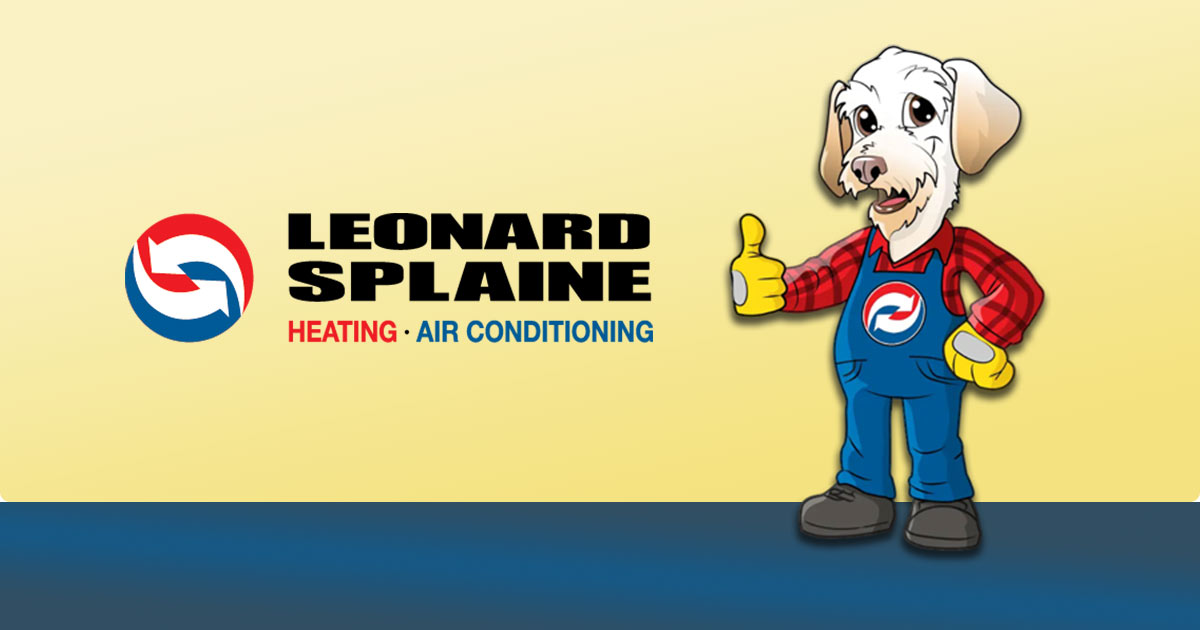Leonard Splaine HVAC Motor Types. What does it mean for you?

As a HVAC system begins to age, like all mechanical parts, if it has been well-maintained over the years of use, it is likely to last longer. However, in order to know when it needs repair or replacement, it is a good idea to know which type of motor operates your system.
Understanding how the motor works in synchronization with other parts of a heating and cooling system helps assess problems as levels of operation become noticeably less effective or fall below the manufacturer’s specifications.
Types of Motors
There are two basic types of motors commonly installed as part of a heating and cooling system: EC and PSC.
Electronically Commutated Motor (EC Motors)
An Electronically Commutated (EC) motor operates via an alternating AC power supply even though it may have a closer resemblance to a DC motor. This allows the EC motor to combine AC and DC features.
As such, an EC motor is intended to convert electrical energy to mechanical energy, which creates and controls the magnetic field. It is important to note EC motors are permanently magnetic with an electrical winding(s) that generates the magnetic field.
In systems where a motor is required for heating and cooling, there may be a blower motor that acts in concert with a condenser or fan motor depending on system design. A motor activates a fan or blower motor to push heated air through vents. The cooling unit may have a separate motor that activates the fan which pushes cooled air through vents. An interesting part of a fan (blower) performance is that it is usually defined as a fan curve, which is a graph that shows fan performance.
EC Motors can be variable speed or single phase which conserve energy at more efficient levels.
The schematic or plot for fan performance is based on developed pressure and specifications for power required over the range of airflow that is generated by the fan. This is important to know when it is time for repair or replacement.
Permanent Split Capacitor (PSC) Motors
A PSC motor for home heating/cooling systems and are engineered to perform two things:
- Operate constantly
- Store electrical charges in windings
A PSC motor has an alternate induction and the parts of the PSC motor include:
- Capacitor
- Ball bearing
- Rotor
- Stator
PSC motors are recognized for simplicity, as well as reliability and low cost.
Comparative Analyses of EC and PSC Motors for Home HVAC Repair/Replacement
In order to be more informed about heating and cooling systems that need service, there are several issues to keep in mind. The most common motor problems are loss of motor power, no electrical signals to motor, and/or damage to windings.
Comparisons:
EC Motor
Has an internal smart board for better motor control.
EC Motor will turn on gradually and allows variable speeds to correspond to the unit’s air flow demand.
An EC Motor is rated IE4 for efficiency resulting in 30% year-to-year energy savings and 80% efficiency and noise reduction of the operating system.
PSC Motor
Not controllable.
PSC Motor turns on and off. Also no speed variances to control.
Since a PSC Motor is designed with multiple speeds, the peak efficiency occurs at an operational speed point that is five to ten percent below its synchronous speed.
How to Match an HVAC Motor (in-Depth
Service for Home Heating/Cooling Systems
When a home heating/cooling system fails to provide effective comfort levels, the ability to identify basic operational failures help the professional service you choose to assess problems accurately and precisely.
For the consumer, understanding the differences between EC and PSC motors also results in avoiding unnecessary costs for a new system should that be necessary, or replacement parts, labor. and installation.
Being well informed about the best motor for heating and cooling a home also helps evaluate the effectiveness of system output. The comparisons between EC and PSC motors are easy to understand and helpful to know for future reference.
To find out more about servicing your heating and cooling equipment after a severe storm, call Leonard Splaine Company the Lennox expert in Northern Virginia.
